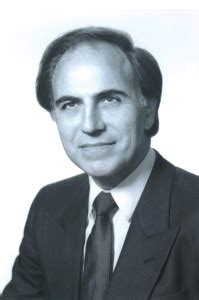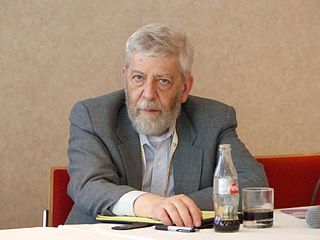A Quote by J. M. Coetzee
State censorship presents itself as a bulwark between society and forces of subversion or moral corruption. To dismiss this account of its own motives by the state as insincere would be a mistake: it is a feature of the paranoid logic of the censoring mentality that virtue ... must be innocent, and therefore, unless protected, vulnerable to the wiles of vice.
Related Quotes
If the state cannot be entirely composed of good men, and yet each citizen is expected to do his own business well, and must therefore have virtue, still inasmuch as all the citizens cannot be alike, the virtue of the citizen and of the good man cannot coincide. All must have the virtue of the good citizen - thus, and thus only, can the state be perfect; but they will not have the virtue of a good man, unless we assume that in the good state all the citizens must be good.
Religious institutions that use government power in support of themselves and force their views on persons of other faiths, or of no faith, undermine all our civil rights. Moreover, state support of an established religion tends to make the clergy unresponsive to their own people, and leads to corruption within religion itself. Erecting the 'wall of separation between church and state,' therefore, is absolutely essential in a free society.
Abortion on demand is the ultimate State tyranny; the State simply declares that certain classes of human beings are not persons, and therefore not entitled to the protection of the law. The State protects the 'right' of some people to kill others, just as the courts protected the 'property rights' of slave masters in their slaves. Moreover, by this method the State achieves a goal common to all totalitarian regimes: it sets us against each other, so that our energies are spent in the struggle between State-created classes, rather than in freeing all individuals from the State.
Two hundred years ago the forces of freedom challenged this idea. The children of the new enlightenment rose up to defy the tyranny of arrogant clergy and the censorship of pious bureaucrats. They boldly proclaimed that the state must be free from religious coercion and that religion must be free from state control. All individuals have the right to pursue the dictates of their own conscience. All citizens even have the right not to be religious at all.
It is unfortunately none too well understood that, just as the State has no money of its own, so it has no power of its own. All the power it has is what society gives it, plus what it confiscates from time to time on one pretext or another, there is no other source from which State power can be drawn. Therefore every assumption of State power, whether by gift or seizure leaves society with so much less power; there is never, nor can be, any strengthening of State power without a corresponding and roughly equivalent depletion of social power.
[T]he mass-man sees in the State an anonymous power, and feeling himself, like it, anonymous, he believes that the State is something of his own. Suppose that in the public life of a country some difficulty, conflict, or problem presents itself, the mass-man will tend to demand that the State intervene immediately and undertake a solution directly with its immense and unassailable resources. This is the gravest danger that to-day threatens civilisation: State intervention; the absorption of all spontaneous social effort by the State.
Some things the legislator must find ready to his hand in a state, others he must provide. And therefore we can only say: May our state be constituted in such a manner as to be blessed with the goods of which fortune disposes (for we acknowledge her power): whereas virtue and goodness in the state are not a matter of chance but the result of knowledge and purpose. A city can be virtuous only when the citizens who have a share in the government are virtuous, and in our state all the citizens share in the government.
The State has always one purpose: to limit, control, subordinate the individual and subject him to the general purpose Through its censorship, its supervision, and its police the State tries to obstruct all free activity and sees this repression as its duty, because the instinct of self-preservation demands it. The State does not permit me to use my thoughts to their full value and communicate them to other men unless they are its own Otherwise it shuts me up.
[W]hich category of crimes does the State pursue and punish most intensely? [T]hose against private citizens or those against itself? The gravest crimes in the State's lexicon are almost invariably not invasions of private person or property, but dangers to its own contentment, for example, treason, desertion of a soldier to the enemy, failure to register for the draft, subversion and subversive conspiracy, assassination of rulers and such economic crimes against the State as counterfeiting its money or evasion of its income tax.
The State which would provide everything, absorbing everything into itself, would ultimately become a mere bureaucracy incapable of guaranteeing the very thing which the suffering person—every person—needs: namely, loving personal concern. We do not need a State which regulates and controls everything, but a State which, in accordance with the principle of subsidiarity, generously acknowledges and supports initiatives arising from the different social forces and combines spontaneity with closeness to those in need. The Church is one of those living forces.
Executing a murderer is the only way to adequately express our horror at the taking of an innocent life. Nothing else suffices. To equate the lives of killers with those of victims is the worst kind of moral equivalency. If capital punishment is state murder, then imprisonment is state kidnapping and restitution is state theft.






































